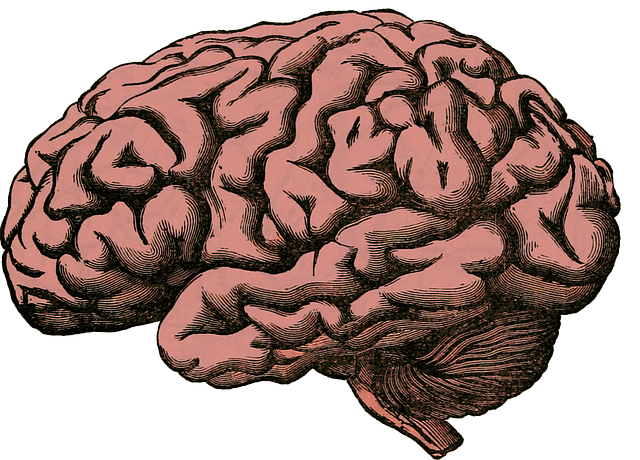Burnout among healthcare providers offering Longmont ADD-ADHD Therapy is a growing concern due to high workload and emotional demands. Characterized by exhaustion, cynicism, and reduced effectiveness, it impacts critical functions like attention and decision-making. Mitigation strategies include self-care practices (exercise, meditation), risk management planning (boundaries, task delegation), depression prevention, resilience building, emotional intelligence cultivation, and cultural sensitivity. Creating supportive environments with flexible schedules, counseling services, and mental health policy advocacy is crucial. Tailored interventions like compassion cultivation and stress reduction techniques empower providers to proactively manage their well-being while delivering exceptional Longmont ADD-ADHD Therapy.
Healthcare provider burnout is a growing concern, impacting patient care and overall well-being. This comprehensive guide explores strategies to combat this epidemic. We delve into understanding burnout, its effects on patient outcomes, and effective prevention methods focusing on self-care, work-life balance, and supportive clinic environments. Additionally, we highlight Longmont ADD-ADHD Therapy as a specialized approach, offering innovative solutions to alleviate burnout among healthcare professionals.
- Understanding Burnout in Healthcare Providers
- The Impact of Burnout on Patient Care
- Strategies for Preventing Burnout: Self-Care and Work-Life Balance
- Creating a Supportive Environment at the Clinic/Hospital
- Longmont ADD-ADHD Therapy: A Specialized Approach to Combating Burnout
Understanding Burnout in Healthcare Providers

Burnout among healthcare providers is a growing concern, particularly given the demanding nature of their work. It goes beyond mere fatigue; it’s a state characterized by emotional exhaustion, cynicism, and a sense of ineffectiveness. Healthcare professionals, especially those offering Longmont ADD-ADHD Therapy, are often at high risk due to the intense emotional investment required in patient care. This continuous exposure to stress can lead to feelings of depletion and detachment from their work.
Understanding burnout is crucial for implementing effective prevention strategies. Self-Care Practices play a pivotal role in mitigating these risks. Mental health professionals should prioritize activities that promote relaxation, such as exercise, meditation, or hobbies, to counteract the effects of workplace pressures. Additionally, Risk Management Planning is essential; this involves setting clear boundaries, delegating tasks, and seeking support from colleagues or professional networks to foster a healthier work-life balance. Moreover, focusing on Depression Prevention strategies can be life-saving, as burnout often masks underlying mental health issues.
The Impact of Burnout on Patient Care

Burnout among healthcare providers can have significant repercussions for patient care and overall treatment outcomes. When medical professionals experience chronic stress and emotional exhaustion, their ability to deliver quality care is compromised. This can lead to decreased attention to detail, impaired decision-making skills, and reduced empathy towards patients. In the context of Longmont ADD-ADHD Therapy, for instance, a burnt-out therapist might struggle to maintain the necessary focus and patience required to effectively support individuals with attention deficit disorders.
The impact extends beyond individual therapists; it permeates the entire healthcare system. High burnout rates among providers can contribute to increased medical errors, reduced patient satisfaction, and higher rates of patient abandonment. Moreover, it can lead to a cycle where burnt-out professionals are less likely to stay updated with the latest research and best practices, potentially hindering their ability to offer cutting-edge treatments, including those for conditions like ADD/ADHD. Building resilience, cultivating emotional intelligence, and fostering cultural sensitivity in mental healthcare practice are strategies that can mitigate burnout and ensure that patients receive the best possible care.
Strategies for Preventing Burnout: Self-Care and Work-Life Balance

In the high-pressure world of healthcare, preventing burnout is essential for maintaining both professional and personal well-being. One of the most effective strategies to combat burnout is prioritizing self-care. This involves creating a healthy routine that includes regular exercise, adequate sleep, and proper nutrition. Taking time for activities that bring joy and relaxation, such as hobbies or spending time in nature, can also significantly reduce stress levels. Additionally, establishing clear boundaries between work and personal life is crucial. Healthcare providers should aim to maintain a balanced schedule, ensuring they allocate sufficient time for family, friends, and leisure activities. This balance allows them to recharge and approach their work with renewed energy and focus, which is particularly important in demanding fields like Longmont ADD-ADHD therapy where high emotional intelligence is required.
Emotional Intelligence plays a pivotal role in managing stress and preventing burnout. By developing self-awareness and learning effective coping mechanisms, healthcare professionals can better handle challenging situations. This might involve practicing mindfulness, engaging in crisis intervention guidance for personal resilience, or joining support groups to share experiences and strategies. Community outreach programs implementation can also foster a sense of belonging and provide additional resources for stress management. These proactive measures not only enhance the provider’s well-being but also positively impact their ability to care for patients, potentially leading to improved outcomes in Longmont ADD-ADHD therapy and other healthcare services.
Creating a Supportive Environment at the Clinic/Hospital

Creating a supportive environment at healthcare facilities like Longmont ADD-ADHD Therapy centers is a proactive approach to preventing burnout among providers. This involves fostering an atmosphere that prioritizes staff well-being and encourages open communication. Simple measures such as regular check-ins, flexible work schedules, and access to counseling services can make a significant difference.
Additionally, integrating Mental Health Policy Analysis and Advocacy into the clinic’s culture ensures policies are in place that address workload management, professional development, and employee recognition—all crucial aspects of mitigating burnout. Emotional Intelligence training for both clinical staff and administrative personnel can enhance empathy, improve patient interactions, and create a more harmonious work environment. Moreover, implementing robust Risk Management Planning for Mental Health Professionals is essential to provide guidance on handling stressful situations, ensuring staff feel supported, and reducing the risk of burnout-related errors.
Longmont ADD-ADHD Therapy: A Specialized Approach to Combating Burnout

In today’s fast-paced healthcare environment, burnout among providers is a pressing concern. Longmont ADD-ADHD Therapy offers a specialized approach to combat this issue, focusing on unique aspects of mental health that often contribute to stress and fatigue. This therapy isn’t just about managing symptoms; it’s a holistic process designed to empower healthcare workers with effective coping mechanisms. By integrating Compassion Cultivation Practices, anxiety relief techniques, and stress reduction methods, therapists in Longmont create a safe space for professionals to explore and address underlying challenges.
This specialized care goes beyond traditional talk therapy, incorporating strategies that cater to the unique demands of healthcare providers. Through tailored interventions, individuals can learn to manage their mental health proactively, preventing burnout before it becomes overwhelming. By prioritizing self-care and adopting sustainable practices, healthcare professionals in Longmont can continue to deliver exceptional patient care while maintaining their own well-being.
Healthcare provider burnout is a pressing issue, impacting not only individual well-being but also patient care. By understanding the causes and effects of burnout, we can implement effective strategies such as self-care practices, work-life balance initiatives, and supportive clinic environments. Longmont ADD-ADHD Therapy offers a specialized approach to combating burnout, highlighting the importance of targeted interventions for healthcare professionals. Ultimately, prioritizing burnout prevention is crucial for fostering healthier, more resilient healthcare providers and, in turn, enhancing patient care outcomes.









